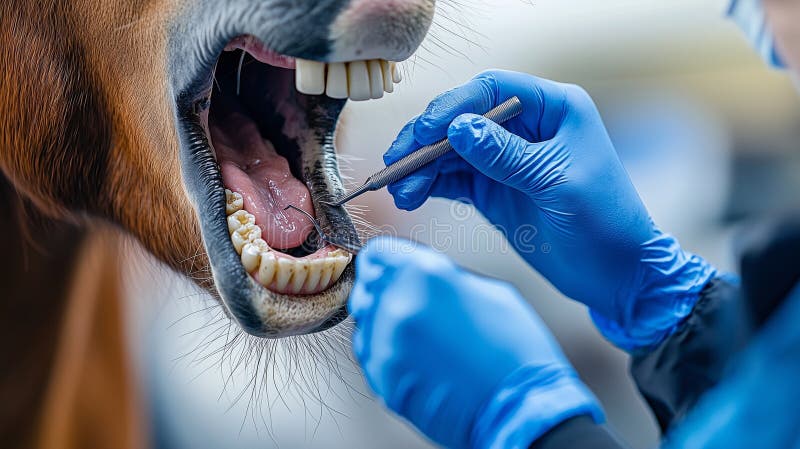When it comes to equine health, the topic of wolf teeth in horses is often a subject of interest and sometimes concern for horse owners. These small teeth, which are found in front of the horse’s first molars, can sometimes cause issues if not properly managed. Understanding their role and how to care for them is essential for maintaining your horse’s overall well-being.

What Are Wolf Teeth?
Wolf teeth are small, pointed teeth that typically appear in horses between the ages of five to 12 months. They are vestigial premolars, meaning they are remnants of evolutionary development that no longer serve a significant function in modern horses. Not all horses develop wolf teeth, and some may only have them on one side of the mouth.
The Evolutionary Purpose
While the exact purpose of wolf teeth is not entirely understood, it is believed they were once used for processing food. Over time, as horses’ diets and feeding habits evolved, the need for these teeth diminished, leading to their vestigial status today. For more on how equine dental structures have evolved, you can visit UConn Extension’s Equine Dental publication.
Common Issues Associated with Wolf Teeth
In some cases, wolf teeth can lead to dental problems, particularly when interacting with bits used during riding. Their location may cause discomfort or interfere with the bit, leading to behavioral issues in horses.
Dental Interference
When a bit is placed in a horse’s mouth, it can come into contact with wolf teeth, causing pain and discomfort. This can result in head tossing, resistance to the bit, and difficulty in training. To learn more about how bits can affect equine dental health, check out the horse dental hygiene guide on Pro Horse World.
Potential for Infection
In addition to interference with the bit, wolf teeth can sometimes become infected or cause other dental issues. This can lead to further complications if not addressed promptly by a veterinarian or an equine dental specialist.
Managing Wolf Teeth in Horses
Proper management of wolf teeth is crucial to ensuring your horse remains comfortable and healthy. Regular dental check-ups and consultations with an equine dentist are key components of this management.
Regular Dental Examinations
It is recommended that horses undergo regular dental examinations to monitor the condition of their teeth, including wolf teeth. These check-ups can help identify potential issues early and allow for timely intervention. For more information on the importance of dental exams, visit the equine dentistry vs vet article on Pro Horse World.
Extraction of Wolf Teeth
In cases where wolf teeth are causing problems, extraction may be recommended. This procedure is relatively simple and can provide relief from discomfort and prevent further complications. Always consult with a qualified equine dental professional or veterinarian before proceeding with extraction.

FAQs
Are Wolf Teeth Necessary?
No, wolf teeth are not necessary for a horse’s diet or health. They are considered vestigial and do not play a significant role in the horse’s ability to chew or process food.
Do All Horses Have Wolf Teeth?
Not all horses develop wolf teeth. It is estimated that around 70% of horses will have them, and they can occur in either the upper or lower jaw, although they are more commonly found in the upper jaw.
What Should I Do If My Horse Has Wolf Teeth?
If your horse has wolf teeth and is experiencing discomfort or behavioral issues, it is advisable to consult with an equine dental professional. They can assess the situation and recommend whether extraction or another course of action is necessary.
In conclusion, while wolf teeth in horses may not serve a significant purpose today, they can still impact your horse’s comfort and performance. Regular dental care and monitoring are essential to manage any potential issues effectively. For further reading on equine dental care, consider the resources available at UF IFAS Extension.
This article contains affiliate links. We may earn a commission at no extra cost to you.
